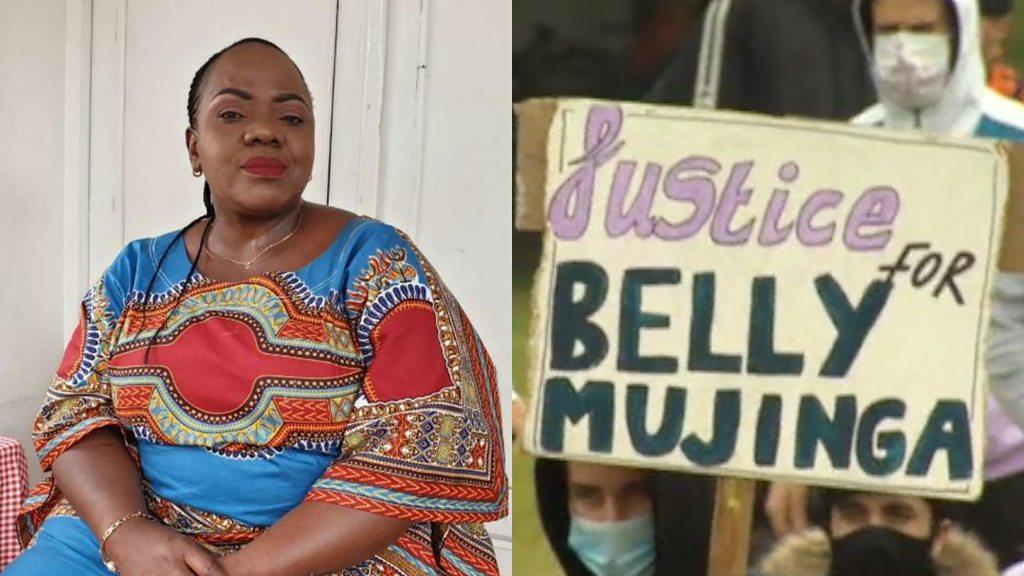Belly Mujinga death: 'Virus cough attack' inquest being considered
- Published
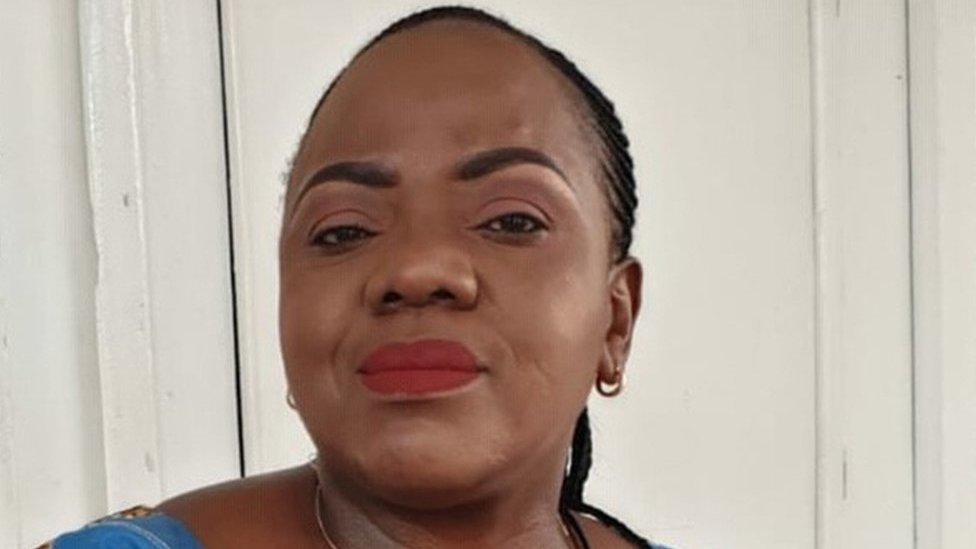
British Transport Police investigated Belly Mujinga's death but said there was not enough evidence to charge anyone
A coroner is deciding whether to hold an inquest into the death of transport worker Belly Mujinga.
The 47-year-old died with Covid-19 in April last year following reports she had been coughed on and spat at by a customer at London's Victoria station.
It comes after a BBC Panorama investigation raised serious questions about the inquiries carried out by her employer and the police.
Senior coroner Andrew Walker said it was a "matter of public importance".
He said he would make a judgement about whether to hold an inquest after careful consideration of the evidence.
Ms Mujinga had worked as a sales clerk at Victoria station for Govia Thameslink Railway since 2010.
In March last year, she and a colleague were involved in an incident on the station concourse with a male customer.
Ms Mujinga, who suffered from an inflammatory condition known as sarcoidosis, died with the virus two weeks later.
British Transport Police investigated her death but concluded there was not enough evidence to charge anyone with a crime.
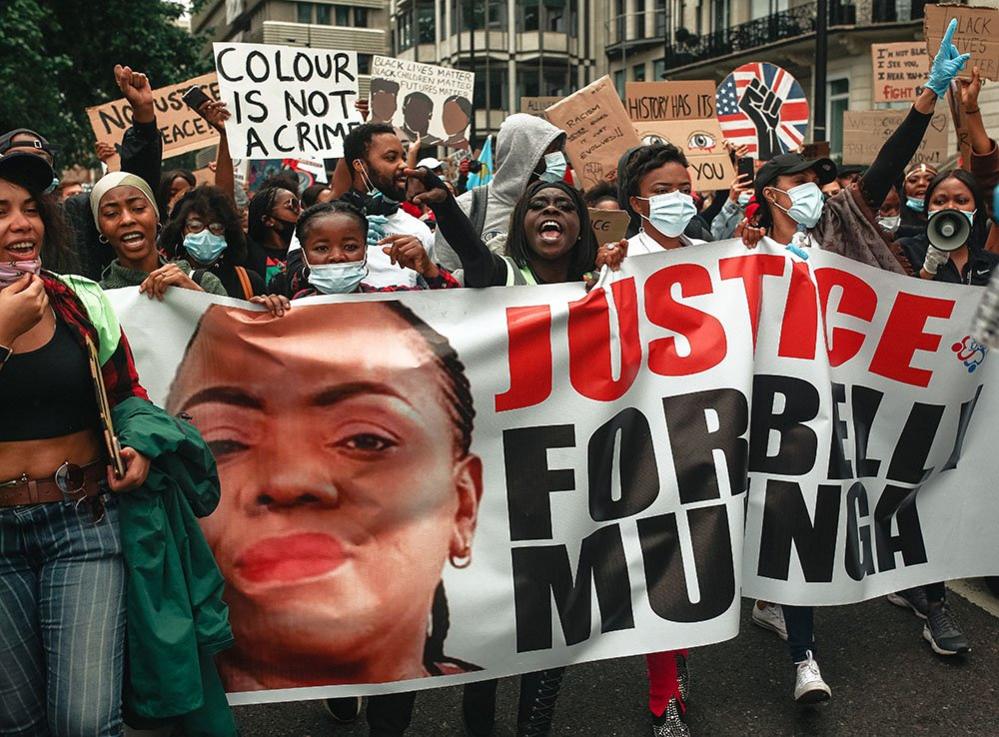
There have been protests calling for justice
Exactly what happened remains contested and the case was examined by BBC Panorama in October.
Following the programme, more than 50 cross-party peers and MPs wrote to the prime minister demanding a public inquiry into her death.
Lawyers for Ms Mujinga's family and Govia Thameslink Railway (GTR) have now put forward arguments at North London Coroner's Court as to whether an inquest should be held.
Barrister Elaine Banton, who is representing Ms Mujinga's family, argued there was reason to suspect that "human failure" had contributed to her death and that she should not have been working on the front line because of her medical condition.
Another Covid death
"GTR had failed to operate a safe system of working at Victoria station and there is no evidence of any risk assessment for Belly Mujinga having been carried out," she told the court.
The company had also gone further than government guidance by "expressly forbidding staff, including Ms Mujinga, from wearing face masks", the coroner heard.
Moreover, staff at the station had been given anti-static spray as opposed to anti-viral spray to clean ticket screens and surfaces so as to not cause "damage", the court heard.
It was also disclosed that another employee at Victoria station died with Covid within five days of Ms Mujinga.
'Impossible to prove'
Peter Skelton QC, on behalf of GTR, denied there had been any failings in health and safety at the station and argued there was no obligation for an inquest as "it would be against common sense".
GTR's managers did take steps to protect employees, including Ms Mujinga, in line with the prevailing government, health and regulatory guidance, he told the coroner.
There was "no basis" to show Ms Mujinga was more likely to catch the disease at work, he said.
Mr Skelton also argued it was impossible for the coroner to answer whether Ms Mujinga had died as a result of being infected while at work and any investigation would be "futile".
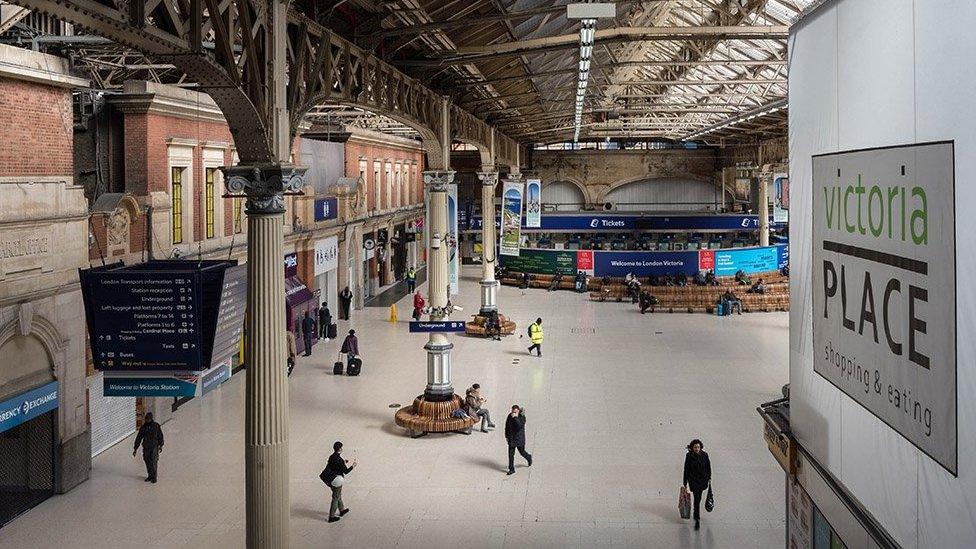
Ms Mujinga had worked as a sales clerk at Victoria station for Govia Thameslink Railway since 2010
But Ms Banton said it would be difficult to determine causation without the disclosure of further company and medical documents and therefore it was "premature" to make such assertions.
She said it was in the public interest for an inquest to be held considering more than two million people had signed a petition calling for justice for Ms Mujinga.
Mr Walker said he would consider the submissions made from both sides.
"It's a matter of public importance and I should take care to ensure that I've covered all of the evidence," he said.
"I'm very conscious of the delay that's occurred and hope I can reach a decision as swiftly as possible for members of the family."
The British Transport Police and the Department for Transport were also in attendance.
Watch Panorama, Belly Mujinga: Searching for the Truth on BBC iPlayer
- Published13 October 2020
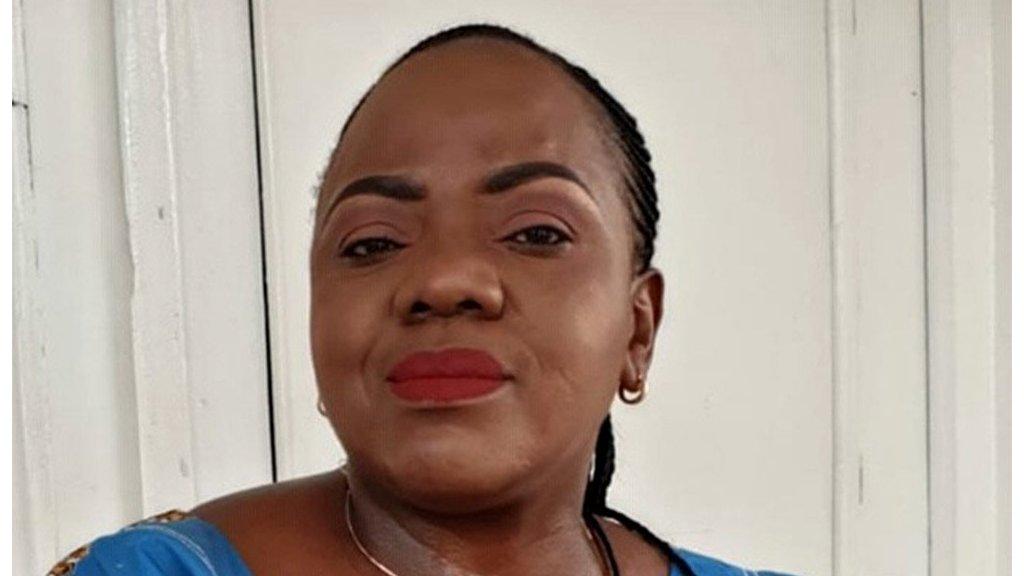
- Published16 September 2020

- Published6 August 2020

- Published24 June 2020
